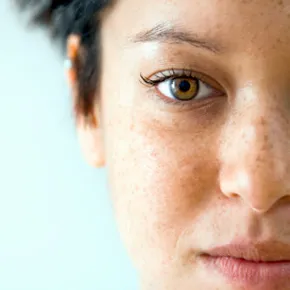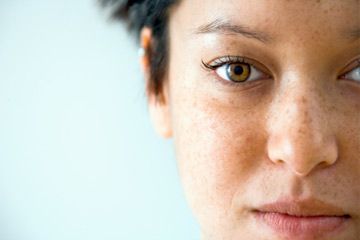They're a distinguishing characteristic of famous redheads like Anne of Green Gables and the Weasley family, but you won't find freckles on redheads alone. Although people with red hair and light skin are more likely to have them, people of all different hair and skin colors can have freckles. Some children might think freckles are an awful thing to have, but many adults grow to love their freckles as part of their unique look and personality.
In simple terms, freckles are areas of the skin that have a little more pigment than the surrounding area. If your doctor ever mentions ephelides, don't worry -- that's just the medical term for freckles. There are two types of freckles: simple freckles and sunburn freckles. Simple freckles are usually small, about the size of the head of small nail, and they're basically harmless. They typically show up on the areas of your body that are exposed to the sun, most often your face. Simple freckles are darker in the summer than in the winter, and they can come in a range of colors, including red, tan, brown, black and yellow. All of the freckles on one person are usually uniform in color, though.
Advertisement
Sunburn freckles, on the other hand, don't fade in the winter like simple freckles do. Also known as lentingines, they can appear on your back and shoulders, and they're usually larger than simple freckles. They may also have irregular borders.
Even though freckles themselves are rarely something to worry about health-wise, the continued and increased appearance of freckles is an indication of how much sun exposure you're getting, and it can be a warning sign that you need to protect your skin more. Freckles are not usually cancerous, as moles sometimes can be, but you should see your doctor if their appearance changes drastically.
To find out why we have freckles and, if you don't like yours, how to hide them, keep reading.
Advertisement


